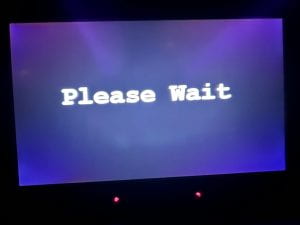It is the end of the fall semester.
As has been my tradition every semester that I teach, since the beginning of my academic career, that means it is time for a final reflection.
This final reflection, however, feels both similar and very different from previous final reflections.
It is similar in that I am finding myself ready for a break after a long semester and in that I am feeling so proud of how far the students I’ve had the privilege to work with have come in this semester.
It has been a particularly hard semester in terms of teaching, as I took on a new prep which I assumed would not be a particularly hard lift in terms of content knowledge (which it wasn’t) but that I didn’t realize would be extremely time intensive.
This semester, I taught the second semester of an action research seminar during which I was ostensibly supposed to guide the two cohorts of Masters students I was working with through a systematic inquiry into their own practice which they had set up in the spring. However, for many reasons beyond my control and that of the students, the course and the semester were not as simple as it might have appeared on paper. Our work required many hours of learning, unlearning, and close collaboration with the wonderful working professionals in the course. It was extremely fulfilling, particularly as they shared the impact of the process of action research for them, and as they shared their “products” and findings of their action research with one another.
When I say this final reflection is different, I suppose it is to be expected. This semester was the beginning of a transition which only now feels very real. I chose to stay for the fall semester at my current institution to support the transition of our new external department chair (a role I took on for an interim year last year as we conducted a search for a chair) into the institution and role, and to more actively support the doctoral student I’m working with. Although I was primarily still in my current institution, I began to lay the foundations for my transition to my next institution where I will begin in the new year.
I am grateful to be able to have had one more semester in a community that I love deeply, but transitions are hard, and given the multiple state, national, personal, and professional commitments I have and had this semester, this transition particularly was a lot, at times too much, for me, particularly in a time in the world when so many are suffering. As I tried to power through things, it was clear my brain, my body, God/ the universe were not okay with me continuing to pretend that I had no limits.
I am grateful to have survived.
I am grateful to have been given multiple chances to choose differently as I move to this new role.
I am grateful for the grace, kindness, and generosity of those in my community who love me deeply.
My university “clearance,” the process of check-out and transition, has officially begun. I am cleaning out my office which (strangely) never felt fully like mine, even after more than 10 years. Next week, I will return my keys and technology. I’ll keep my e-mail (for a year) and many of my friendships (for a lifetime, I hope), but in many ways, it feels like my time at CSULB will be quickly erased and soon it will be as if I wasn’t ever there. It is humbling to have given so much to an institution, to a place, and to feel like when it is over, things will go on, in many ways, as if I hadn’t ever been there.
I know this is not fully true, and that there will be parts of the work I’ve contributed to that will endure long after I am gone. But I also am feeling acutely the ways in which institutions cannot love you back.
And it is strangely okay.
Because as much as institutions cannot love you back, people can, if you invest deeply in them.
My time at CSULB’s College of Education has been an incredible blessing to me. I will be forever grateful that the search committee and dean that brought me into the university saw who I could be and opened a door for me. I worked hard to make the most of every opportunity I was given, including those that I “shouldn’t” have had; I overcame the skepticism people who doubted me because of the type of institution I worked in; I built relationships with beautiful teacher candidates, (teacher) educators, communities; I strengthened the work of teacher education in my institution, community, and state. I was fortunate. I take none of it for granted.
It has not been easy, but it has made me better, and I will ALWAYS cherish this time.
This chapter is closing. I chose to close it in a way that is in integrity with who I am and my commitments.
It has not been easy, but it has made me better, and I will always be grateful for the lessons I have learned this semester.
The chapter closes, but the story continues.
I am looking forward to the next chapter, to building alongside cherished community (established and new) and to continuing to grow in humility…after a pause.


